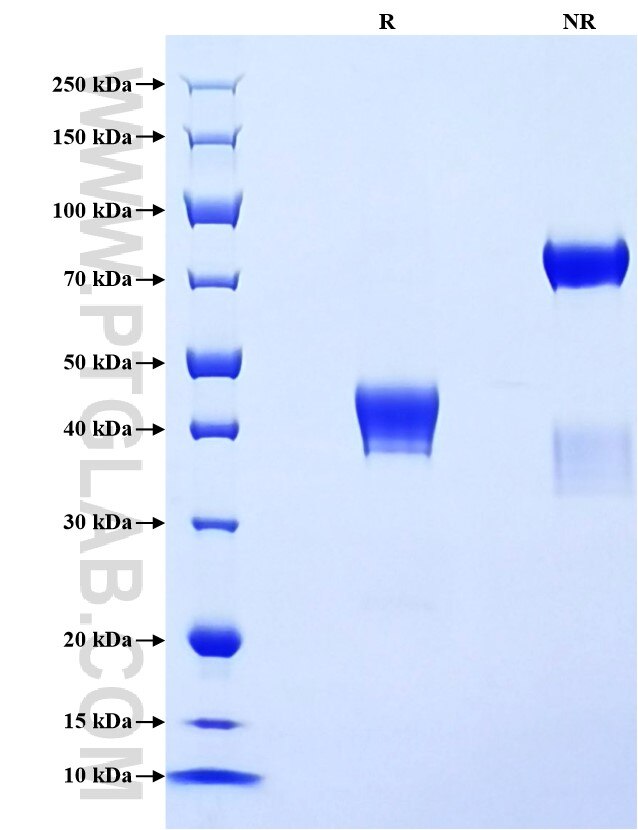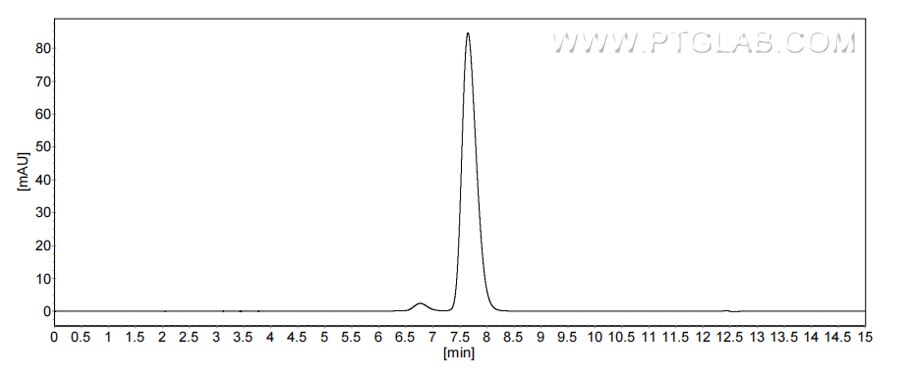Recombinant Canine MCP-1/CCL2 protein (rFc Tag)(HPLC verified)
Species
Canine
Purity
>90 %, SDS-PAGE
>90%, SEC-HPLC
Tag
rFc Tag
Activity
not tested
Cat no : Eg4550
Validation Data Gallery
Product Information
| Purity | >90 %, SDS-PAGE >90%, SEC-HPLC |
| Endotoxin | <0.1 EU/μg protein, LAL method |
| Activity |
Not tested |
| Expression | HEK293-derived Canine MCP-1 protein Gln24-Pro101 (Accession# P52203) with a rabbit IgG Fc tag at the C-terminus. |
| GeneID | 403981 |
| Accession | P52203 |
| PredictedSize | 35.1 kDa |
| SDS-PAGE | 36-45 kDa, reducing (R) conditions |
| Formulation | Lyophilized from 0.22 μm filtered solution in PBS, pH 7.4. Normally 5% trehalose and 5% mannitol are added as protectants before lyophilization. |
| Reconstitution | Briefly centrifuge the tube before opening. Reconstitute at 0.1-0.5 mg/mL in sterile water. |
| Storage Conditions |
It is recommended that the protein be aliquoted for optimal storage. Avoid repeated freeze-thaw cycles.
|
| Shipping | The product is shipped at ambient temperature. Upon receipt, store it immediately at the recommended temperature. |
Background
MCP-1 (also known as CCL2) is a member of the chemokine family. MCP-1 recruits monocytes, memory T cells and dendritic cells to sites of inflammation caused by either tissue injury or infection. MCP-1 has been implicated in the pathogenesis of diseases characterised by monocytic infiltrates, such as psoriasis, rheumatoid arthritis and atherosclerosis. It binds to the chemokine receptors CCR2 and CCR4. Increased expression of MCP-1 is associated with severe acute respiratory syndrome coronavirus 2 infection.
References:
1.Singh S. et al. (2021) Int Immunopharmacol. 101(Pt B):107598. 2.Lin Z. et al. (2023) Front Immunol. 13:1053457. 3.Li X. et al. (2017) Gut. 6(1):157-167. 4.Huang B. et al. (2007) Cancer Lett. 252(1):86-92.

